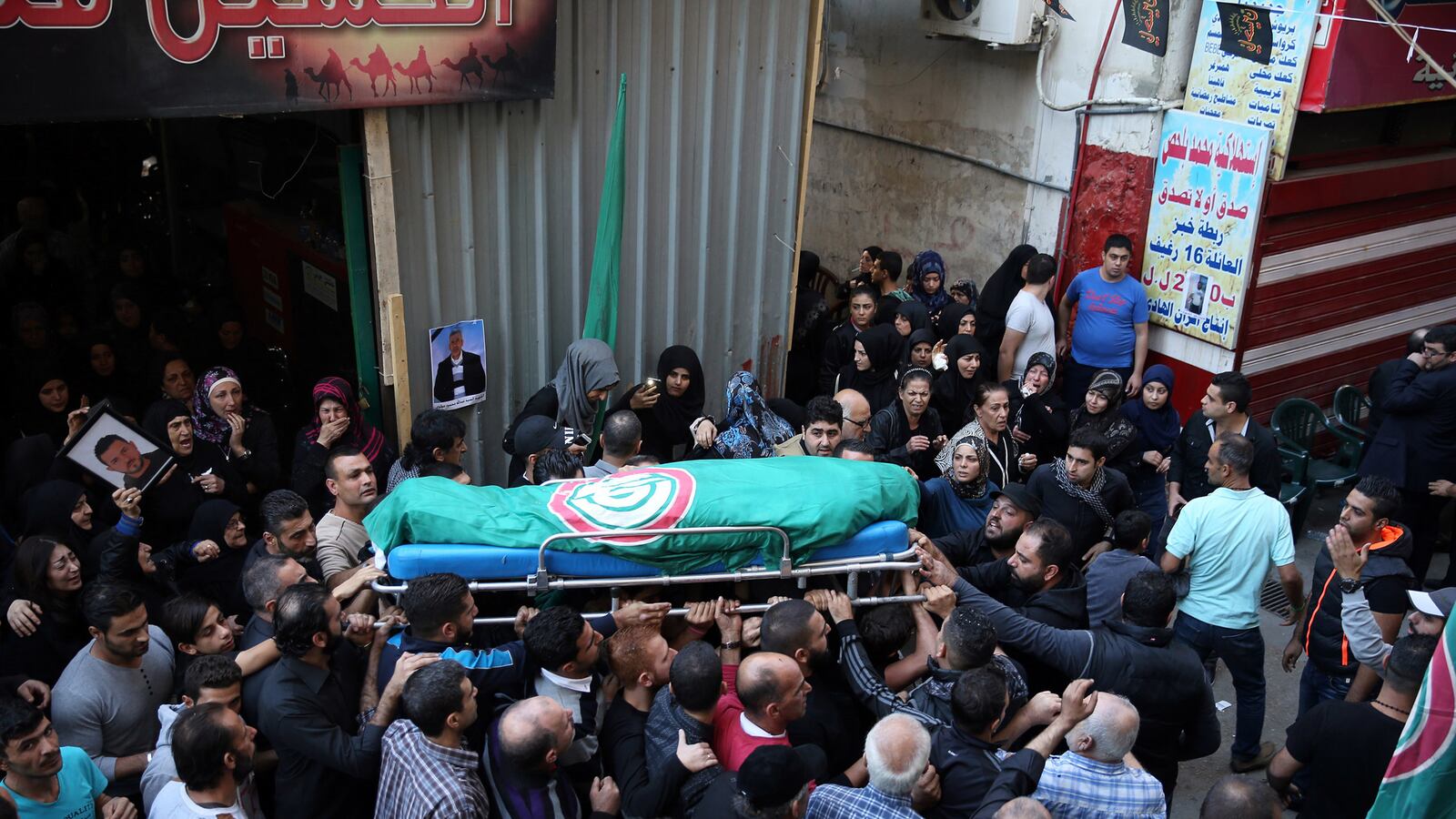BEIRUT — While world leaders are traveling to Vienna to discuss a political solution in Syria, two explosions ripped through Beirut’s southern Dahiyeh suburbs, leaving at least 43 people dead and over 239 others injured in the bloodiest terror attack to hit Lebanon's capital since the end of the civil war in 1990.
Hours after the blast, an alleged ISIS claim of responsibility for the attack circulated on social media, saying that 40 “rafideen”—a pejorative term for Shiite Muslims used by Sunni Islamists—were killed in the “security operation.”
ISIS and Hezbollah haven’t been in direct confrontation in Syria. Except for one clash this year near the Lebanese border, the so-called Islamic State has never gone into battle with “the Party of God.” The Lebanese feared that ISIS claiming responsibility for the explosion in Beirut could be the beginning of a bloody new era.
The explosions targeted a Shiite area, and the message behind the explosion was obviously a message for Hezbollah, which has been militarily involved in Syria for more than four years. However, this was not a warning per se as much as it was a declaration of war. At the surface, ISIS told Hezbollah that its involvement in Syria has a high price in Lebanon. But on a deeper level, ISIS told everyone involved in discussing the peace process in Vienna that war is the only option, and that the international community cannot give Iran and Hezbollah any guarantees in Syria, Lebanon, or the region as a whole.
Hezbollah had already chosen war, but the U.S. nuclear deal with Iran gave them the impression that they would be allowed to intervene in Syria unchecked. This is not necessarily wrong, but some regional powers, including Saudi Arabia and the Gulf States, do not agree.
Fidaa Itani, an expert on Syria, told The Daily Beast that ISIS wanted to show Hezbollah that its illusion of power could collapse any minute. “ISIS has basically shattered any guarantee Hezbollah might have received from the international community in its war in Syria,” he said. “Hezbollah understands now that it cannot be protected at home no matter what political solution is reached and despite any guarantees Iran could have achieved.”
ISIS has demonstrated to the Shiites and the rest of Lebanon that Hezbollah cannot protect them, and that its “tight” security plan in the southern suburbs of Beirut is a fantasy.
ISIS also knew this explosion would increase the hatred rhetoric and attacks against Syrian refugees by angry Shiites. Hezbollah has already issued a communique among its supporters, asking them not to gather in public places for fear of further suicide-bomb attacks in southern Beirut, but the most dangerous part of their message appealed for “citizens to look for anyone who looks suspicious and not to let them go.”
As expected, social media and the streets were loaded with sectarian hatred Friday. Shiite and Sunni tensions in Lebanon were already on the rise after Hezbollah’s involvement in Syria’s war.
Hezbollah will attempt to take advantage of Shiite anger to recruit much-needed fighters. And ISIS will do the same—they may feel that Lebanese Sunnis are a potential pool of fighters. The deteriorating economic situation in Lebanon has made young men particularly susceptible to recruitment.
The war is obviously stretching beyond Syria, and diplomatic solutions for Syria that disregard the Sunnis and Shiites of Iraq and Lebanon will not work. These explosions should be seen as a warning for the international community—the Iran deal does not automatically make just Shiites strategic allies of the West; Sunnis are also needed in the fight against ISIS.
Historically, Hezbollah has never reacted rationally to bombings in its areas; it only understands the language of power and violence. Hezbollah might be expected to retaliate by bombing Sunni areas in Lebanon or by assassinating opponents—politicians, diplomats, journalists, and public figures are all in danger now. Hezbollah can always blame ISIS, as they used to blame the Israelis for all terrorists acts against Lebanese. Whatever they say in public, the message will be received.
Will this stop the vicious circle of violence? Probably not. More bombings and assassinations will lead to similar reactions, and more sectarian tension and clashes. The only way out is for Hezbollah to leave Syria. But of course that is not going to happen, no matter how many more Shiites or Lebanese die.
Hezbollah will use and hide behind the Lebanese military and security institutions to protect itself in Lebanon. It will stay in Syria until Iran gets what it wants: that is, power over the corridor that links the Syria Alawite coast to Lebanon’s borders. Even then, Hezbollah will have to stay in Syria to protect it. Any political solution that does not recognize this will not be accepted by Iran, and Vienna talks will not reach any solution as long as Iran is at the table making sure nothing else works.
In Lebanon, Syria, and Iraq, war will intensify and more people will die, while messages like Thursday night’s will be bloody and plentiful. Until Iran’s hand in Syria is tied, and the Sunnis are given some kind of victory, such as the removal of Assad, both Hezbollah and ISIS will grow in power and hostility.






